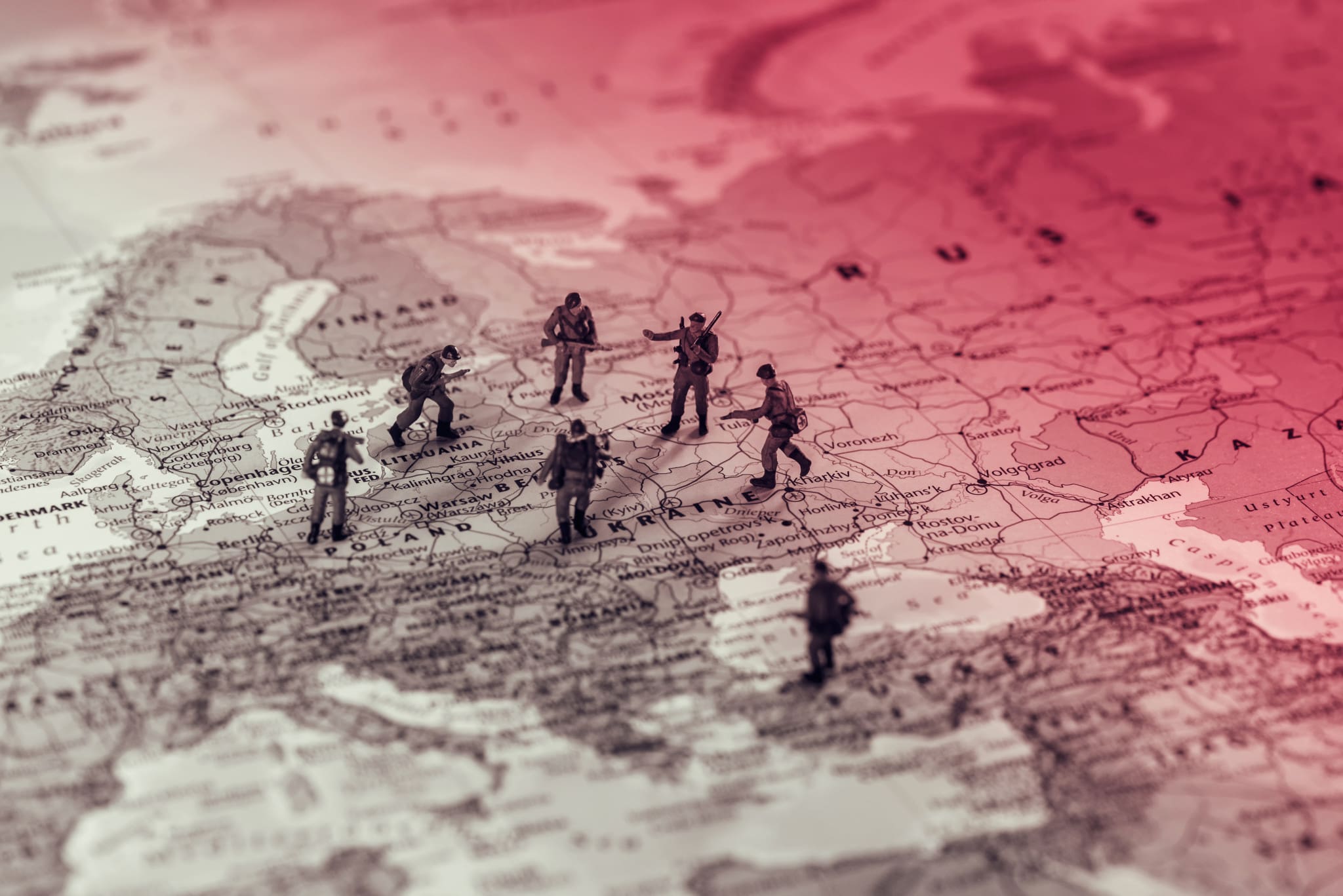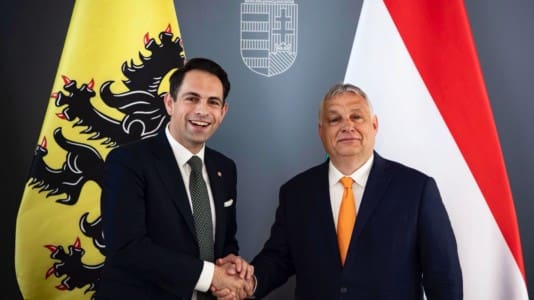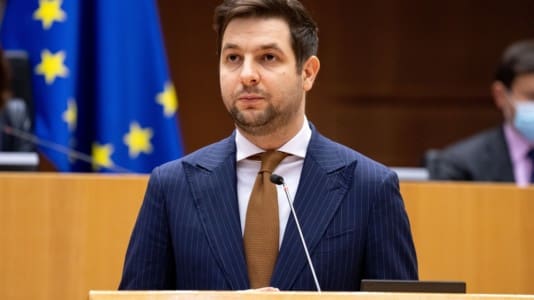Professor Mária Schmidt, the director-general of the House of Terror and the 21st Century Institute in Budapest, Hungary, offered a dramatic vision of the situation of Western Europe and the world, which has “lost its self-representation and has been completely Americanized,” in a debate article written at the request of PestiSrácok.hu for its series entitled “Where to next? – A debate on the tasks of the national agenda.” In the article, she also offers strong advice to the fifth Orbán government, which is starting its work “under extremely difficult circumstances.”
According to Schmidt, the reform of healthcare, education and defense must be continued. As part of this last point, she says we need to rethink the reintroduction of universal conscription for men and women, since war, as we can see, is by no means a thing of the past. The professor stresses in her piece that the government has always represented Hungarian interests on the basis of realpolitik, but now it must do everything it can to find allies and curb the escalation of war. “As the eyes of the people in the West are increasingly opened, new opportunities will arise,” she notes.
The Fidesz-KDNP’s fourth two-thirds victory in a row is a great success and a joy, but also a great responsibility, especially as we have to continue governing on a difficult path, where maintaining the results achieved so far will be a challenging task.
The Hungarian electorate voted for Prime Minister Viktor Orbán and Fidesz-KDNP because their living standards have improved significantly over the 12 years of their governments. Their self-esteem has increased and, as a result, their self-confidence. The overwhelming majority of Hungarian voters agreed that protecting and supporting families and children should be at the core of the government’s policy, and that its primary purpose should be the financial dignity of those raising children. They support the government in representing the national interest, i.e., in its measures to strengthen the nation and in defending national sovereignty.
War and economic crisis threaten Europe
After 12 straight years in government, Fidesz-KDNP has won both the anti-elite and the protest votes. This is because the united opposition lined up against it offered only a past that had been repeatedly rejected, along with, of course, the Orbán-hatred and unquestioning worship of the West. It peddled political messages that interested no one outside a narrow bubble in the capital, and alienated everyone else. Threats of a constitutional coup and scares of overthrowing the social order frightened the silent majority. So did their reaction to the Russian-Ukrainian war.
The fifth Orbán government, which is now taking office, is continuing to govern in extremely difficult circumstances: War is raging in our neighborhood, upheavals and crises are piling up in Europe and the world, the exact magnitude and impact of which are not yet clear, and yet, everybody can already feel their effect. Orbán has had to deal with continuous crises for his last three terms. The period we have left behind has been like a car race where you have to change tires on the fly. It started with a global financial and economic crisis, plus having to start from a position of near-bankruptcy. It continued with a coronavirus pandemic that crippled the whole world, bringing devastation not seen for a hundred years. Now we have war and the resulting economic crisis threatening our continent.
USA’s intention is to make Europe a belligerent party
On February 24, 2022, Russia invaded Ukraine, and the situation, no longer a mere limited, local war, now increasingly risks profoundly changing the world we have lived in for the last 30-plus years. It is now clear to everyone that this war is being waged by the U.S. with Russia through the Ukrainians. And it is determined to make Europe a belligerent party. In retaliation for Russian aggression, the U.S. has responded with economic, financial, commercial, cultural and legal war. In doing so, it has set global objectives. As a continuation of the U.S.’s century-long export of democracy, it wants to bring about regime change in Russia and the removal of President Putin. It aims to isolate Russia completely and to make it impossible for it to exist. It is sending a message to the world that anyone who opposes it or goes against its interests will be wiped off the map, even if it is a former superpower with huge economic resources and a nuclear arsenal. That is the fate of anyone who challenges Pax Americana.
Europe is the primary victim of the economic and financial sanctions already announced and implemented. The leaders of the European Union are unquestioningly meeting the ever-increasing demands of the American hawks, which will cause serious problems for the livelihoods of European citizens. They will have to prepare for shortages of food, raw materials and fuel, which could be accompanied by massive unemployment. Russia provides almost 40 percent of Europe’s energy supply, relatively cheaply and reliably. The U.S. demands that our continent give up Russian gas and oil without any possibility of replacing this resource. A halt in Ukrainian and Russian grain exports could lead to a food crisis in countries that have been dependent on them for their needs. Meanwhile, EU leaders are handling the situation by telling us not to heat our homes above 18 degrees, not to shower as much, and to “air out” rather than wash our clothes. The majority of Europeans refuse to believe their ears and are not yet taking it seriously that this could happen, but if the Russian energy supply really does stop, they will wake up quickly. Social discontent could emerge in the blink of an eye, with unforeseeable consequences.
Germany: the giant with clay feet
Europe’s main problem is that it lacks any form of self-representation. Western Europe is now completely Americanized, unable to distinguish its own interests from those of the U.S. It is frightening to see how vulnerable Germany, with its 80 million inhabitants, has become, how unable it is to resist the suicidal policies imposed by the ruling gerontocrats of the USA. For a long time, Germany seemed to be the most powerful state in Europe. Now, even the label of a giant on clay feet is too flattering and overly generous.
The war also seems to threaten the Polish-Hungarian friendship, seemingly so close, because the Poles, in their hysterical anti-Russianism, believe that they will be unconditionally safe under the protective umbrella of their American friendship. And yet, what will happen to them if the Americans and the Russians make peace and reconcile? What will happen if a new U.S. administration focuses on the Pacific and turns its back on a Europe that has by then become irrelevant?
The Biden administration, which serves the U.S. military-industrial lobby, recently decided on $33 billion in new arms shipments to Ukraine, two-thirds of which will remain with American arms manufacturers. And, as British Defence Secretary Ben Wallace said, it is not a high price to pay to completely weaken the Russians and cut them off from their European energy markets. At the end of the Second World War, U.S. Secretary of the Treasury Morgenthau came up with a plan to deindustrialize Germany, reducing its population’s standard of living and education to African levels. At the time, this project did not receive political support. Could it now?
They came to us with the same recipe that got Zelensky elected
Europe’s Western European opinion-makers, academic and media workers, and political elites are completely Americanized. Their cultural preferences, themes and ambitions are indistinguishable from those of the American motherland.
In the April elections, the American and Western decision-makers behind the opposition made sure and did everything possible to put our country’s scalp on their target board of new sites for the successful export of democracy. They used the same recipe that got the former comedian Zelensky elected. In the case of Zelesnky, he starred as the protagonist (and producer) of the Ukrainian soap opera “The Servant of the People,” which according to press reports was generously sponsored by the U.S. In the story, the modest and honest high school history teacher declares war on corruption and is elected president of Ukraine overnight. Zelensky and his company also founded a party called “Servant of the People” while filming the movie, and by the time the popular TV series ended in 2019, Zelensky had been elected president in real life.

In Hungary, they sought to recreate the same reality-defying outcome when they organized the broadest possible coalition, a patriotic Popular Front 2.0, so to speak, against Orbán, bringing together neoliberals and socialists, greens and nuclearists, post-communists and post-Arrow Cross Party members [Ed. note: Hungarian Nazi party during WWII]. Although in many places they succeeded in removing leaders who were not sufficiently, or not entirely, pro-American, in our country, they were an abysmal failure. Their non-partisan, Canadian-Hungarian civilian candidate did not meet the standards that Hungarians expect of their leaders.
Due to yet another failure of exporting democracy in Hungary, we are seen as a thorn in the side of American and European leaders. That is why they immediately launched the “rule of law” procedure against us, which is a punishment for dissent and disobedience, ultimately, the withdrawal of funds. The rule of law is a rubber stamp, like the “public interest” used under Socialism, which would have been violated by us taking a trip to the West had we been allowed out. That is why, in Denmark for example, it is within the rule of law to deport to Kosovo migrants who are considered undesirable. In Italy, it is within the rule of law to plan to use artificial intelligence to monitor every aspect of their citizens’ lives, just like the Chinese Communists. The difference is, however, that Hungary simply will not be tolerated. The rule-of-law nations of the developed West confiscate Russians’ properties, houses and yachts without being at war with Russia. They restrict Russians’ access to their own savings and bank accounts. I’m not talking about a few “oligarchs,” I’m talking about Russians, collectively, all of them. Oh, and they want to transfer the proceeds to Ukraine. All of this is within the rule of law, but not us putting a stop to LGBTQ oppression, saying no to our children being educated about gender reassignment procedures, or preventing the entire Hungarian media from becoming the voice of America, as in the West. The portal 444.hu is more than enough. The way they see it, we have neither the rule of law nor freedom of the press.
We truly must go forward, not backwards
To summarize: The defense of our national interests is not appreciated by the mighty American empire and its European deputies. We are in danger of being the only ones to stick with Russian energy supplies, because without them, our economy will grind to a halt and we will not be able to cook or heat our homes. Orbán, and therefore our country, will come under increasing pressure every day. We are also only now emerging from the Covid crisis, and we have not yet returned to the normal situation that existed before the quarantine. We must continue to reform healthcare, education and defense. We need to rethink the reintroduction of universal conscription, for both men and women. (It would be worthwhile to launch a national consultation on this). In other words: We must go forward, not backwards!
Hungary has a government that represents the Hungarian national interest on the basis of realpolitik. It is an important Hungarian national interest that the lives of Hungarian citizens should be safe, that peace should be preserved, and that everyone should have a job and food. We hope that the warring parties will be able to reach an agreement and make peace as soon as possible. Peace is like air — while we have it we don’t notice it, but its absence makes our lives impossible.
It is the duty of the Hungarian government to do everything it can to end the war as soon as possible and to avoid further escalation. And to also seek out allies. As people’s eyes in the West are increasingly opened, new opportunities will arise to achieve this.
Disclosure: In response to the original article on Pesti Srácok, the Hungarian Ministry of Defense stated that “Maria Schmidt’s position on conscription is the personal opinion of the professor and in no way coincides with the government’s position.”






